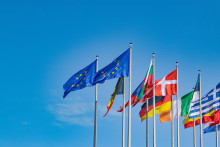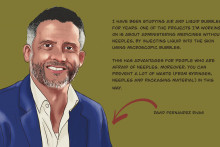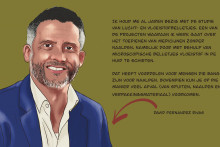ERC Proof of Concept grants are intended for researchers who have already conducted ERC funded research, to further explore an idea that was generated in the course of their ERC-funded projects. This top-up funding should bring scientific discoveries closer to the market. This year, five grants went to the following UT researchers.
David Fernandez Rivas (Adjunct Professor, Mesoscale Chemical Systems group) was awarded the top-up funding based on his research into needle-free injections, for which he received the ERC Starting Grant in 2019. The ERC Proof of Concept will be used for his project Bold-Jet, which aims to revolutionize the experience of people who receive or perform frequent injections by developing a unique needle-free device using microjets. Bold-Jet should become a solution for treatments that do not require a high dosage in one injection event – such as vaccines and hormones.
Jeroen Rouwkema (Associate Professor, Department of Biomechanical Engineering) and his team work on the development of full-functional cultured tissues as a substitute for donor tissue. In 2016, Rouwkema received the ERC Consolidator Grant for a project aiming to successfully connect cultured tissue to the blood vessels of patients. Within the VascArbor project, Rouwkema’s team developed a new technology to pattern controlling factors that play a role in blood vessel organization. With the additional ERC funding, they can undertake further steps to putting the developed technology into practice.
Professor of Advanced Robotics, Stefano Stramigioli’s ERC project PortWings wants to understand the basic physics behind bird flight and work towards creating a novel robotic bird. This includes the engineering of embedded sensing and actuation in materials, especially using additive manufacturing. In this specific line, the researchers had the patented idea which could drastically improve 3D printing. They aim to use an electrically conductive material for 3D-printing and use this in combination with electrodes to measure the resistance in real-time to determine properties of the object under printing.
Within his ERC-funded project Deep vision, Professor’s Ivo Vellekoop’s team (Biomedical Photonic Imagining) developed a new simulation method needed for calculating how light (and other waves) propagates through complex structures – which is essential for developing faster internet, better camera lenses, more sensitive sensors, and more efficient light sources. At the moment, the method is limited to structures that are small enough to fit on a single computer. In the WAVESIM proof-of-concept project, they will attempt to overcome this issue and investigate options for commercializing the software.
Wiebe de Vos, Professor of Membrane Surface Science, and his team are developing the next generation of membranes created without the use of toxic or harmful solvents, but prepared completely in water. They will use the ERC Proof of Concept to explore a green and sustainable alternative to producing membranes by further developing an Aqueous Phase Separation (APS) technique.








